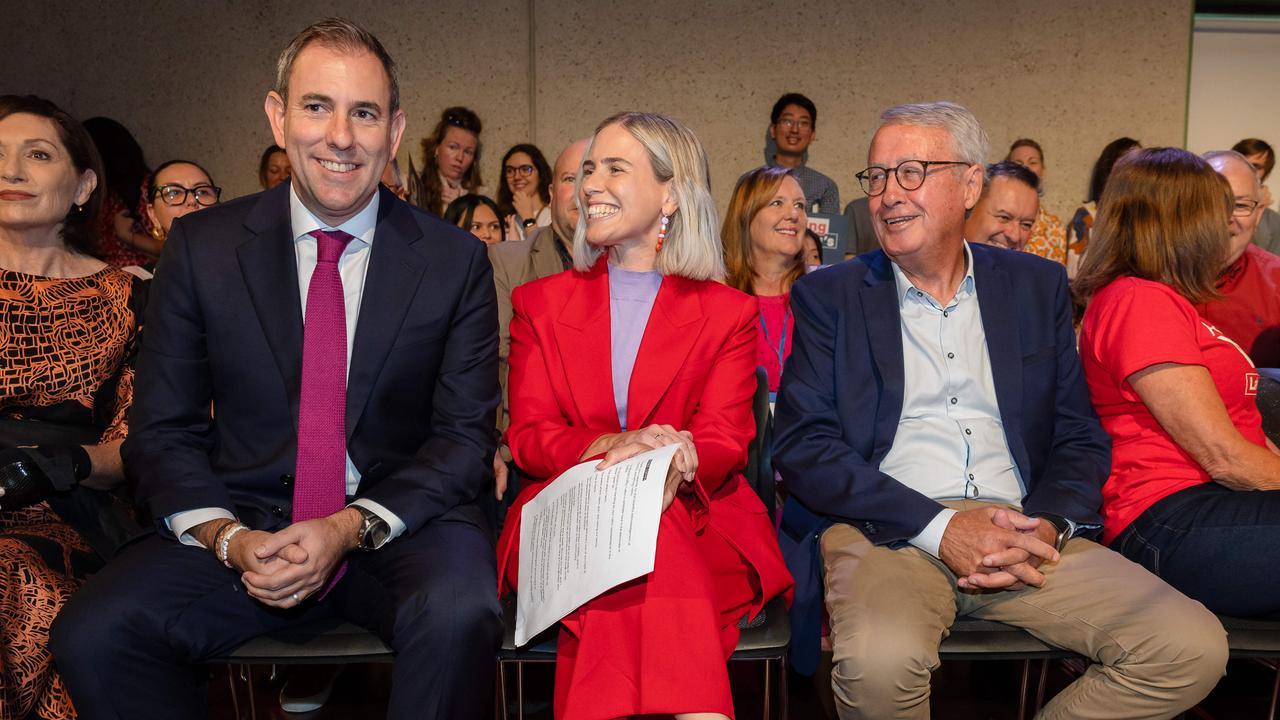Cost of living rips fabric of society, report finds
The belief that Australia is a ‘land of opportunity’ is dissipating, with the nation’s social cohesion fraying under cost-of-living and housing affordability pressure, a new study finds.

The belief that Australia is a “land of opportunity” is dissipating, with the nation’s social cohesion fraying under cost-of-living and housing affordability pressure, a new study finds.
The Scanlon Foundation Research Institute’s 2023 Mapping Social Cohesion report also finds falling trust in the federal government, a waning sense of national pride and a slide in the belief that all people are getting “a fair go”.
And one bright spot of social cohesion, the sense of neighbourhood and community belonging, which had increased during the Covid pandemic, is now threatened by the outbreak of unrest on the streets in response to the Israel-Hamas conflict, the report’s author says.
Australian National University academic James O’Donnell said while the survey of 7500 Australians was taken before the October 7 massacre of Israeli civilians by Hamas that triggered the invasion of Gaza, the scenes that took place in the Melbourne suburb of Caulfield last Friday may further strain the nation’s social fabric.
“It is a positive that we are strongly connected to our neighbourhoods and we broadly believe in multiculturalism as a positive for society, so these are resources to manage this current challenge,” Dr O’Donnell said.
“But if there is a wedge driven between two groups in society, and others start lining up on either side, it will really put some pressure on this resource at a time we can least afford it.”
The study, in its 17th year, tracks social cohesion through an index, which in 2023 hit 79, its lowest point since 2007 and a 13-percentage-point fall since 2020.
Until 2013 more than 80 per cent of people agreed that “Australia is a land of economic opportunity”, but that has slumped to 63 per cent this year, the report finds.
It notes 48 per cent of people consider economic issues the most pressing concern, followed by housing affordability and shortages, both up considerably across the last decade.

“Australians have remained remarkably resilient; however, the latest survey findings reveal our social cohesion is under pressure and declining on several fronts, straining the fabric of our society,” Dr O’Donnell said.
“People who are struggling financially are much less likely to feel a great sense of belonging in Australia, and much more likely to feel pessimistic about the future.
“With more Australians under financial pressure in 2023, it’s perhaps not a surprise that our sense of worth and social inclusion are also lower this year.”
The study also reports falling trust in the federal government.
“Belief that ‘the government in Canberra can be trusted to do the right thing for the Australian people’ all or most of the time declined from a peak of 56 per cent of people in November 2020 to 36 per cent in 2023,” it says.
This is part of the reason behind an overall fall in the proportion of people who say they have a great sense of national pride and belonging, from 63 per cent in 2020 to 48 per cent in 2023.
“With more people worried about economic inequality, we’re less trusting of government, more worried about the future and less connected to Australian values and society,” Dr O’Donnell said.
The report offers some contrasting data about Australia’s acceptance of multiculturalism and its levels of race- and religion-based discrimination.
In 2023, 89 per cent of Australians agree “multiculturalism has been good for Australia”, and 86 per cent agree immigrants are good for Australia’s economy.
But attitudes vary depending on where immigrants are from.
“More than 90 per cent of Australians have very or somewhat positive feelings towards immigrants from Italy, Germany and the UK,” the report says.
“But this proportion drops to 70 per cent for India, and to little more than 60 per cent or below for immigrants from Ethiopia, Lebanon, China, Iraq and Sudan.”
It also shows 27 per cent of people expressed a negative view towards Muslims, and 16 per cent towards Christians.







To join the conversation, please log in. Don't have an account? Register
Join the conversation, you are commenting as Logout